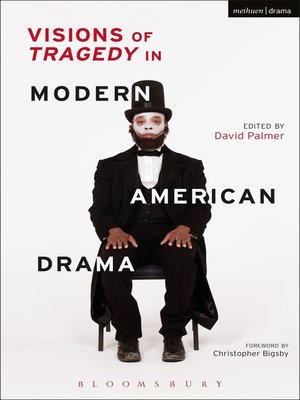
Sign up to save your library
With an OverDrive account, you can save your favorite libraries for at-a-glance information about availability. Find out more about OverDrive accounts.
Find this title in Libby, the library reading app by OverDrive.



Search for a digital library with this title
Title found at these libraries:
| Loading... |
This volume responds to a renewed focus on tragedy in theatre and literary studies to explore conceptions of tragedy in the dramatic work of seventeen canonical American playwrights. For students of American literature and theatre studies, the assembled essays offer a clear framework for exploring the work of many of the most studied and performed playwrights of the modern era. Following a contextual introduction that offers a survey of conceptions of tragedy, scholars examine the dramatic work of major playwrights in chronological succession, beginning with Eugene O'Neill and ending with Suzan-Lori Parks. A final chapter provides a study of American drama since 1990 and its ongoing engagement with concepts of tragedy.
The chapters explore whether there is a distinctively American vision of tragedy developed in the major works of canonical American dramatists and how this may be seen to evolve over the course of the twentieth century through to the present day. Among the playwrights whose work is examined are: Susan Glaspell, Langston Hughes, Tennessee Williams, Arthur Miller, Edward Albee, Lorraine Hansberry, Amiri Baraka, August Wilson, Marsha Norman and Tony Kushner. With each chapter being short enough to be assigned for weekly classes in survey courses, the volume will help to facilitate critical engagement with the dramatic work and offer readers the tools to further their independent study of this enduring theme of dramatic literature.
The chapters explore whether there is a distinctively American vision of tragedy developed in the major works of canonical American dramatists and how this may be seen to evolve over the course of the twentieth century through to the present day. Among the playwrights whose work is examined are: Susan Glaspell, Langston Hughes, Tennessee Williams, Arthur Miller, Edward Albee, Lorraine Hansberry, Amiri Baraka, August Wilson, Marsha Norman and Tony Kushner. With each chapter being short enough to be assigned for weekly classes in survey courses, the volume will help to facilitate critical engagement with the dramatic work and offer readers the tools to further their independent study of this enduring theme of dramatic literature.






